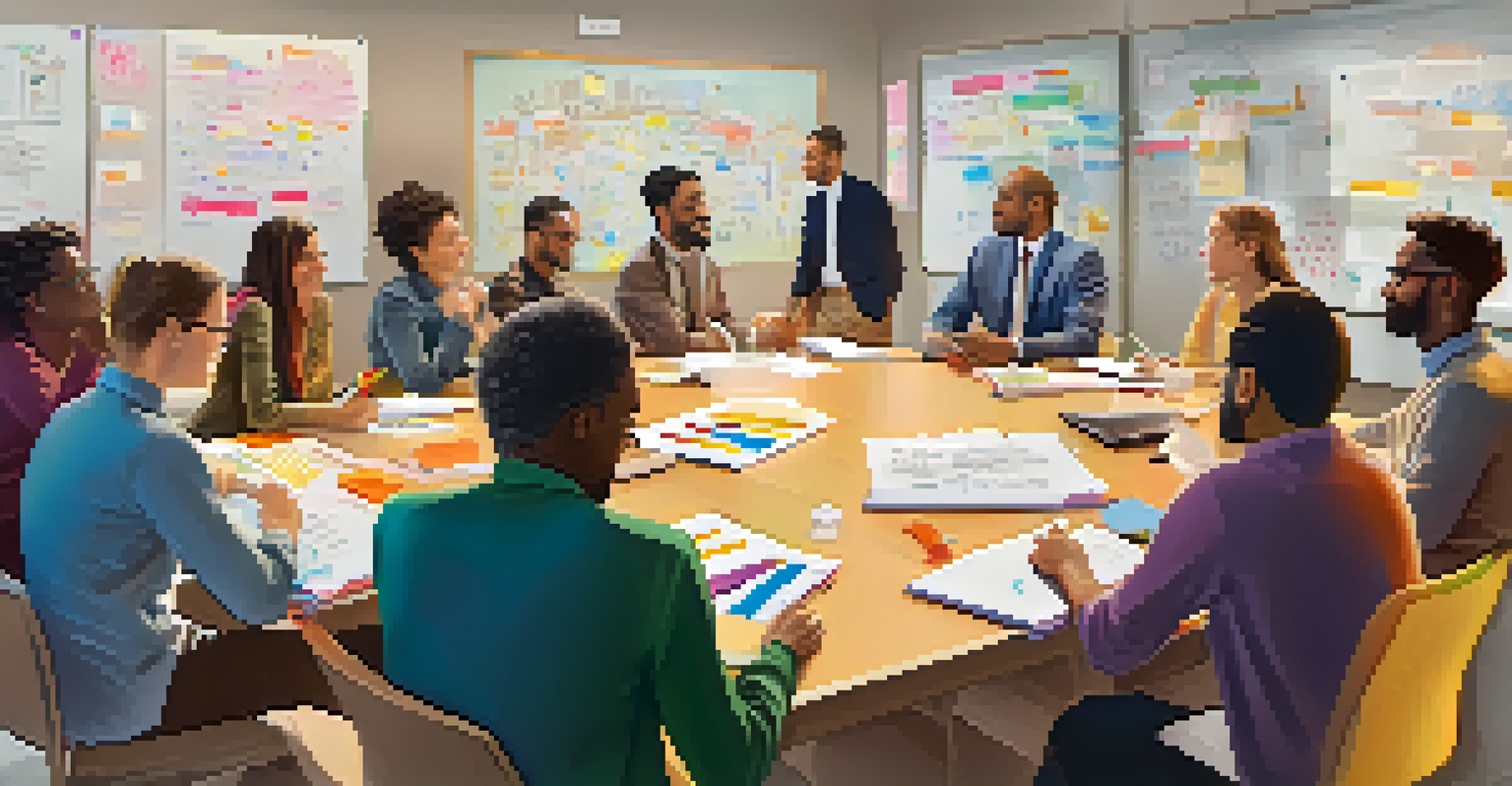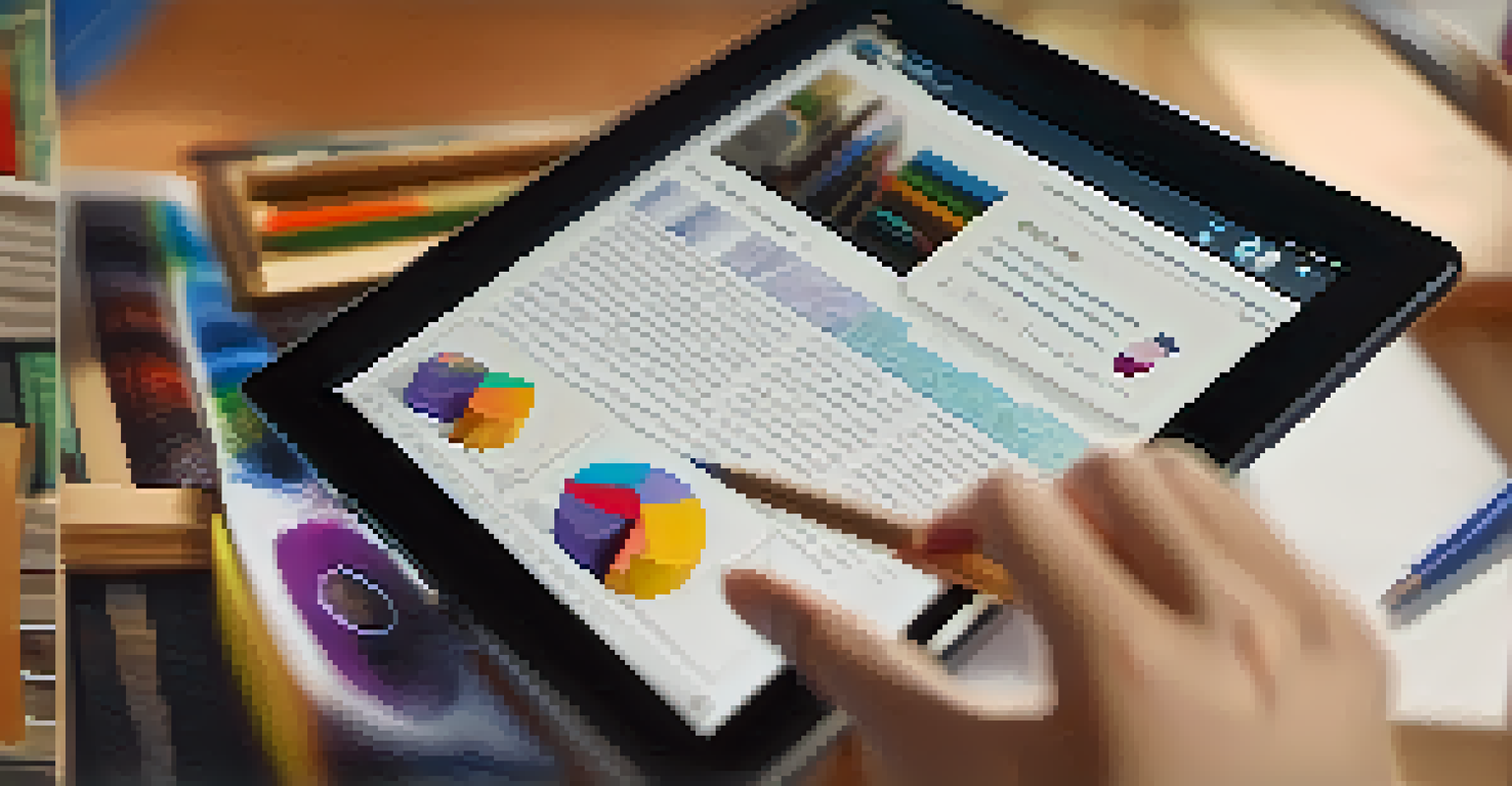Lifelong Learning: Adapting Education for Career Changes

Understanding Lifelong Learning and Its Importance
Lifelong learning is the continuous pursuit of knowledge and skills throughout one’s life. In a world where industries are rapidly evolving, this approach is more crucial than ever. It empowers individuals to adapt to changes, ensuring they remain relevant in their careers.
Lifelong learning is not a luxury but a necessity for anyone who wants to thrive in a rapidly changing world.
Imagine lifelong learning as a journey rather than a destination—an adventure where each new skill adds a piece to your personal map. Whether it’s picking up a new language or mastering a software program, each step enhances your capabilities. This journey is not just about staying employed; it’s about thriving in any environment.
Moreover, lifelong learning fosters a growth mindset, encouraging you to embrace challenges rather than shy away from them. This attitude not only benefits your career but also enriches your personal life, making you more adaptable and open to new experiences.
Identifying Skills Needed for Career Transitions
When considering a career change, it's essential to assess what skills you currently possess and what new skills are in demand. Start by researching the field you’re interested in; job postings often highlight essential qualifications and competencies. This will help you identify gaps in your knowledge.

Think of this process like a puzzle; each skill is a piece that contributes to the bigger picture of your career. Networking with professionals in your desired field can provide valuable insights into what skills are truly necessary. Engaging in informational interviews can unveil what employers are looking for.
Lifelong Learning is Essential
Continuous learning helps individuals adapt to industry changes and thrive in their careers.
Once you have a clear idea, list the skills you need to acquire, prioritizing them based on relevance and urgency. This targeted approach ensures you’re investing your time and energy wisely, setting a strong foundation for your career transition.
Exploring Educational Resources for Lifelong Learning
The good news is that there is a wealth of resources available for lifelong learners. Online platforms, such as Coursera and Udemy, offer courses on a variety of subjects, from coding to creative writing. These platforms often feature industry experts as instructors, giving you access to high-quality education at your own pace.
The beautiful thing about learning is that no one can take it away from you.
In addition to online courses, don't overlook local community colleges or workshops that provide hands-on learning experiences. These venues often foster a sense of community, allowing you to learn alongside others who are on similar journeys. Plus, networking with peers can lead to unexpected opportunities.
Lastly, consider the power of podcasts and webinars as educational tools. They allow you to absorb information while multitasking, making it easier to fit learning into your busy life. The key is to stay curious and seek out diverse learning methods that resonate with you.
Setting Goals for Your Lifelong Learning Journey
Setting clear, achievable goals is vital for maintaining motivation in your lifelong learning journey. Start by defining what success looks like for you—be it mastering a new skill or earning a certification. By breaking down your goals into smaller, manageable tasks, you can track your progress and celebrate small victories along the way.
Think of it like training for a marathon; you wouldn’t just wake up one day and run 26.2 miles. Instead, you would create a training plan that gradually builds your endurance. Similarly, your learning goals should be structured to help you build confidence and competence over time.
Identify Skills for Career Growth
Assessing existing and needed skills is crucial for a successful career transition.
Regularly revisiting and adjusting your goals is also important. As you learn and grow, your interests and aspirations may evolve. Embracing this flexibility will keep your learning journey aligned with your career ambitions, ensuring you remain engaged and focused.
Building a Support System for Lifelong Learning
A strong support system can make all the difference in your lifelong learning journey. Surround yourself with like-minded individuals who share your passion for growth and education. Whether through study groups, professional organizations, or online communities, these connections can provide encouragement and accountability.
Think of your support system as your personal cheerleading squad; they can keep you motivated when the going gets tough. Sharing your goals with others not only helps you stay committed but also opens up opportunities for collaboration and shared learning experiences.
Additionally, consider seeking out mentors who can provide guidance and share their experiences. A mentor can offer valuable advice and help you navigate the challenges of career transitions. With the right support, you’ll be better equipped to tackle new learning endeavors and achieve your career goals.
Embracing Technology in Lifelong Learning
In today’s digital age, leveraging technology is crucial for effective lifelong learning. From mobile apps that offer bite-sized lessons to virtual classrooms that connect you with educators worldwide, technology has transformed how we access information. Embracing these tools can enhance your learning experience and make it more interactive.
Think of technology as your gateway to a treasure trove of knowledge. With just a few clicks, you can explore topics that pique your interest or join webinars that align with your career goals. The accessibility of online resources means you can learn anytime, anywhere, fitting education into your busy schedule.
Goals Keep Learning on Track
Setting clear, achievable goals enhances motivation and guides your lifelong learning journey.
Moreover, staying updated with technological trends in your industry is vital. This not only helps you remain competitive but also opens doors to innovative learning opportunities. By embracing technology, you are not just adapting; you are thriving in a rapidly changing landscape.
Reflecting on Your Learning Journey and Next Steps
Reflection is an essential part of the lifelong learning process. Taking the time to assess what you’ve learned and how it applies to your career can provide valuable insights. Ask yourself questions like, 'What skills have I gained?' and 'How can I apply them to my current or future job?'
Think of this reflection as looking in a rearview mirror; it helps you understand your journey while keeping your eyes on the road ahead. By recognizing what has worked well and what challenges you faced, you can make informed decisions about your next steps. This self-awareness fosters continuous growth.

Ultimately, your lifelong learning journey is ongoing. As you reflect, set new goals and seek out fresh opportunities for growth. Remember, every lesson learned is a stepping stone toward achieving your career aspirations, and the best part is that the journey is uniquely yours.